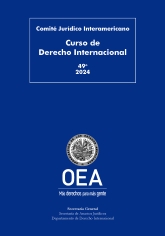Views
International tech litigation reaches the next level: collective actions against TikTok and Google
Written by Xandra Kramer (Erasmus University Rotterdam/Utrecht University) & Eduardo Silva de Freitas (Erasmus University Rotterdam), members of the Vici project Affordable Access to Justice, financed by the Dutch Research Council (NWO), www.euciviljustice.eu.
Introduction
We have reported on the Dutch WAMCA procedure for collective actions in a number of previous blogposts. This collective action procedure was introduced on 1 January 2020, enabling claims for damages, and has since resulted in a stream of (interim) judgments addressing different aspects in the preliminary stages of the procedure. This includes questions on the admissibility and funding requirements, some of which are also of importance as examples for the rolling out of the Representative Action Directive for consumers in other Member States. It also poses very interesting questions of private international law, as in particular the collective actions for damages against tech giants are usually international cases. We refer in particular to earlier blogposts on international jurisdiction in the privacy case against TikTok and the referral to the CJEU regarding international jurisdiction under the Brussels I-bis Regulation in the competition case against Apple.
Turning Point: China First Recognizes Japanese Bankruptcy Decision
This post is written by Guodong Du and Meng Yu and published at China Justice Observer. It is reproduced here by kind permission of the authors.
Key takeaways:
- In September 2023, the Shanghai Third Intermediate People’s Court ruled to recognize the Tokyo District Court’s decision to commence civil rehabilitation proceedings and the order appointing the supervisor ((2021) Hu 03 Xie Wai Ren No.1).
- This marks not only the first time that China has recognized a Japanese court’s decision in a bankruptcy procedure, but also the first time that China has recognized a Japanese judgment.
- The case establishes a legal precedent for cross-border bankruptcy decisions, demonstrating that prior non-recognition patterns between China and Japan in civil and commercial judgments may not apply in such cross-border scenarios.
- While not resolving the broader recognition challenges between the two nations, this acknowledgment sends a positive signal from the Chinese court, hinting at potential future breakthroughs and fostering hope for improved legal cooperation.
Disentangling Legal Knots: Intersection of Foreign Law and English Law in Overseas Marriages
Written by Muhammad Zubair Abbasi, Lecturer at School of Law, Oxford Brookes University (mabbasi@brookes.ac.uk)
Introduction:
In a recent judgment Tousi v Gaydukova [2024] EWCA Civ 203, the Court of Appeal dealt with the issue of the relevance of foreign law to the remedy available under English law in respect of an overseas ceremony of marriage. Earlier the High Court had held that the foreign law determines not only the validity or invalidity of the ceremony of marriage but also the ramifications of the validity or invalidity of the ceremony. The Court of Appeal disagreed and reiterated the rule that lex loci celebrationis is limited to the determination of the validity or invalidity of the ceremony of marriage. Therefore, English law will apply to provide a remedy or relief upon the breakdown of the relationship of the parties to a marriage ceremony that took place abroad.
News
Judgment of the Hellenic Supreme Court Part 2: Relatives’ rights to compensation for emotional distress in fatal car accidents under the Rome II Regulation
Following a judgment by the Supreme Court of Greece in 2023, the issue of direct damages was once again brought before Areios Pagos. In a decision that diverged from the ruling of the Court of Justice of the European Union (CJEU) in the Lazar case, the Supreme Court reaffirmed its position. However, one member of the court expressed a dissenting opinion, emphasizing the obligation of national courts to submit a preliminary reference. This judge provided rationale for the Supreme Court’s departure from established case law, highlighting the importance of adhering to the CJEU’s precedents in the context of European legal integration.
Out Now: The 50th anniversary of the first Inter-American specialized conference on private international law. The future of private international law in the Americas by Dante Mauricio Negro Alvarado

The Department of International Law (Secretariat for Legal Affairs) of the Organization of American States (OAS) has just published in essay form the lectures delivered during the 49th Course on International Law, which was held on 5 -16 August 2024. For more information, click here.
The book features the following piece: The 50th anniversary of the first Inter-American specialized conference on private international law. The future of private international law in the Americas by Dante Mauricio Negro Alvarado (in English, p. 295-335). This is a must-read for Private International Law academics and lawyers from the region and beyond. Read more
Call for Abstracts – Emerging Voices in Private International Law (Asser Institute)
Post prepared by Eduardo Silva de Freitas, PhD researcher Erasmus University Rotterdam and junior researcher at the Asser Institute
As part of its 60th anniversary celebrations, the T.M.C. Asser Institute invites abstracts for the panel “Emerging Voices in Private International Law”, to be held on 24 October 2025 in The Hague, at the conference Adapting Private International Law in an Era of Uncertainty.
The panel will feature two early-career scholars (PhD candidates or postdoctoral researchers) presenting original work in the field. Selected participants will also contribute to a forthcoming volume in the Short Studies in Private International Law series.
To apply, please submit a 400-word abstract and brief personal details by 15 August 2025 (24:00 CET) to: e.silva.de.freitas@asser.nl
Full call for abstracts: https://www.asser.nl/media/797989/call-for-abstracts_pil_asser.pdf


